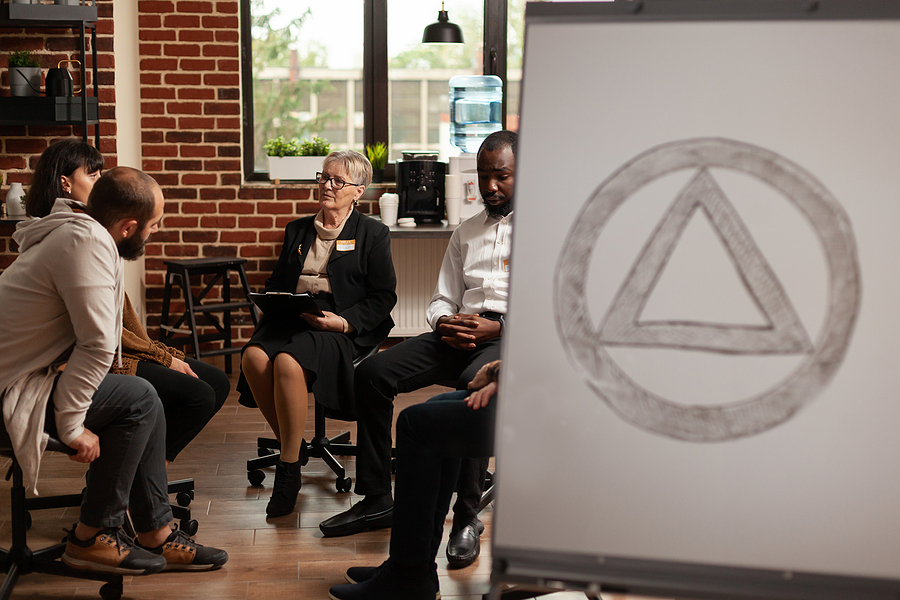Alcohol addiction affects millions of people and often requires structured support to overcome. Two of the most recognized recovery programs are Alcoholics Anonymous (AA) and SMART Recovery. Both help people achieve sobriety, but their methods and philosophies differ in important ways. Understanding how each program works will help you decide which path may fit your goals and values.
How Alcoholics Anonymous Works
Alcoholics Anonymous began as a fellowship built on shared experience. Members meet to support one another, exchange stories, and work through the challenges of alcoholism together. The heart of the program lies in the 12 Steps, which guide participants through acknowledging their powerlessness over alcohol, seeking spiritual growth, making amends, and helping others.
Regular meetings provide structure and accountability. Members listen, share, and receive encouragement from people who have faced the same struggles. This sense of belonging often proves critical, especially for those who feel isolated by addiction.
Anonymity stands as another cornerstone of AA. By protecting identities, the program creates a safe, judgment-free space for open discussion. Most members also work with a sponsor (someone further along in the program) who offers mentorship, guidance, and accountability. With its spiritual foundation and community focus, AA continues to serve as a lifeline for millions worldwide.
Key Features of SMART Recovery
SMART Recovery (short for Self-Management and Recovery Training) offers a secular and science-based alternative to AA. Instead of surrendering to a higher power, SMART emphasizes evidence-based strategies that help individuals reshape habits and thought patterns.
The program centers on a 4-Point Program:
- Building and maintaining motivation.
- Coping with urges.
- Managing thoughts, feelings, and behaviors.
- Living a balanced life.
Meetings encourage participation, discussion, and practical problem-solving. Instead of following a fixed script, facilitators guide members through cognitive-behavioral strategies and motivational tools that participants can apply immediately in their daily lives.
SMART Recovery also broadens its scope beyond alcohol. People use it to address drug use, gambling, overeating, and other compulsive behaviors. This adaptability attracts individuals who want evidence-based strategies and personal accountability at the center of their recovery journey.
Which Program May Work Best for You
Your choice depends on personal beliefs, comfort level, and what motivates you most.
- If you value spiritual growth, shared experience, and accountability through fellowship, AA may fit best.
- If you prefer secular methods, scientific strategies, and a greater sense of independence, SMART Recovery may suit you better.
Many people explore both options before committing. Attending a few meetings of each can provide clarity about where you feel the most supported and inspired. What matters most is not which program you choose but that you find a framework that empowers you to pursue sobriety with confidence.
Contact Serenity Treatment Center of Louisiana for Guidance
If you feel unsure which recovery path to follow, professional support can help you sort through your options. Serenity Treatment Center of Louisiana provides assessments, counseling, and connections to resources like AA and SMART Recovery. Their team works with you to design a plan tailored to your needs, whether that involves group meetings, one-on-one therapy, or a combination of approaches.
The first step toward recovery often feels daunting, but you do not have to take it alone. Contact Serenity Treatment Centers of Louisiana at (225) 361-0899 to get the help that you need.










